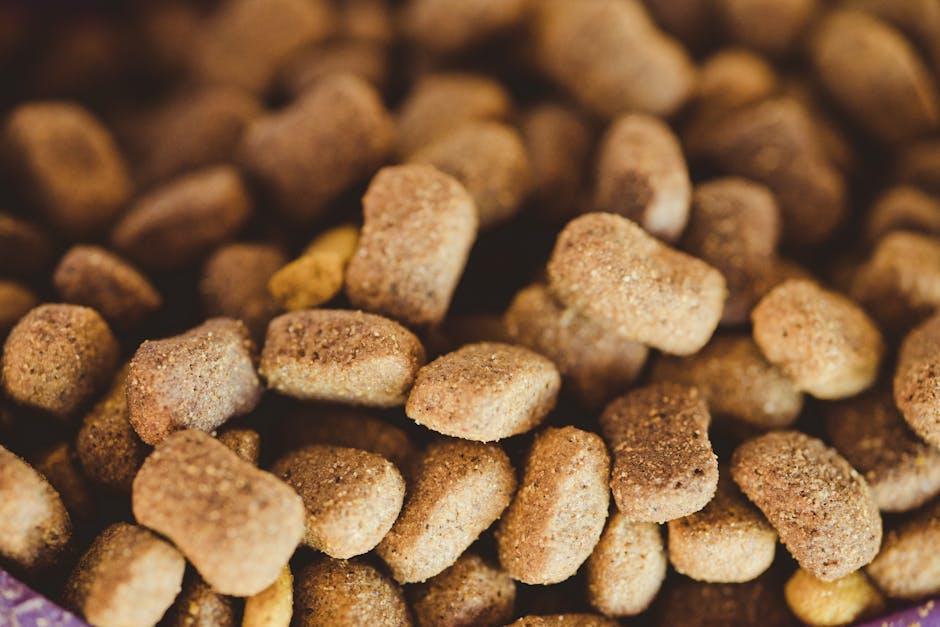Welcoming a new puppy into your home is an exciting and joyful experience, filled with moments of discovery and affection. As a loving pet parent, one of your top priorities is ensuring your furry friend grows up strong and healthy. A crucial component of this journey is providing the right nutrition to support their developing bones and joints. Just like human babies, puppies require a well-balanced diet tailored to their specific needs to thrive during these formative months. In this article, we will explore the essential nutrients and feeding practices that contribute to optimal bone and joint health in puppies, helping you make informed choices to nurture your pup’s growth and set the foundation for a long, active life.
Choosing the Right Nutrients for Your Puppys Growing Bones
When it comes to nurturing your puppy’s skeletal development, it’s essential to focus on a diet rich in specific nutrients that support bone and joint health. Calcium and phosphorus are the cornerstones of bone formation, but balance is crucial; too much or too little can lead to developmental issues. Ensure your puppy’s food contains the right ratio of these minerals to promote healthy growth. Additionally, vitamin D plays a pivotal role in helping your puppy’s body absorb calcium effectively, so look for foods fortified with this vitamin.
- Protein: High-quality protein sources like chicken, lamb, or fish provide the amino acids necessary for muscle and tissue development.
- Omega-3 fatty acids: Found in fish oil and flaxseed, these support joint health and reduce inflammation.
- Glucosamine and chondroitin: These compounds, often included in premium puppy foods, help build cartilage and keep joints flexible.
Opt for a balanced puppy food formula that combines these vital nutrients to ensure your furry friend grows up with strong bones and joints, ready to explore the world by your side.

Understanding the Role of Calcium and Phosphorus in Joint Development
Calcium and phosphorus are essential minerals that play a crucial role in the development of your puppy’s joints and bones. These minerals work together to ensure that bones grow strong and dense, providing the necessary support for your playful pup’s adventures. An imbalance, however, can lead to serious developmental issues. Ensuring the right calcium-to-phosphorus ratio in your puppy’s diet is key to optimal growth.
- Calcium is vital for building the structural framework of bones. It also supports muscle function and nerve transmission, making it indispensable for a healthy, active lifestyle.
- Phosphorus complements calcium by contributing to bone strength and density. It aids in the repair of tissues and cells, ensuring that your puppy can bounce back quickly from those inevitable tumbles.
For a balanced diet, consult your vet or choose puppy food specifically formulated to maintain the ideal calcium-to-phosphorus ratio. This ensures that your furry friend not only grows up strong but also enjoys a life full of movement and joy.

Tailored Feeding Schedules and Portion Sizes for Healthy Growth
Establishing a customized feeding routine is crucial for ensuring your puppy develops strong bones and healthy joints. Puppies grow rapidly, requiring different nutritional needs compared to adult dogs. To promote optimal growth, consider feeding them small, balanced meals multiple times a day. As they grow, gradually adjust the frequency and portion size to suit their changing needs. This practice not only supports their physical development but also helps in building a routine that aids in digestion and nutrient absorption.
- Morning: A nutrient-rich breakfast to kickstart their energy levels.
- Midday: A moderate portion to sustain energy through playtime.
- Evening: A balanced dinner to replenish nutrients after a day of activity.
Understanding the specific dietary needs of your breed is equally important. Larger breeds may require different calcium and phosphorus ratios to prevent joint issues, while smaller breeds might need higher caloric density in smaller portions. Consulting with your veterinarian can provide insights into the appropriate portion sizes and nutrient ratios tailored for your puppy’s breed, size, and activity level. By paying close attention to their diet, you ensure a foundation for a lifetime of joint health and vitality.
















